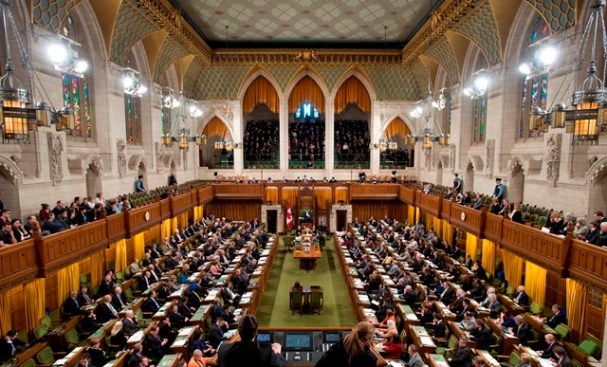THUNDER BAY — The independent body that periodically reviews the boundaries of federal electoral districts is beginning its work on the redistribution of ridings in Ontario.
It's an exercise that has created anxiety for Northern Ontario leaders in the past.
Stagnant population growth in the region, and rapid growth in Southern Ontario, have resulted in the loss of seats in the North where there were 12 ridings in 1974, but only 10 by 1987.
Under the Constitution, riding boundaries must be reviewed every 10 years, after the census, so they reflect population changes.
The calculation uses population estimates from Statistics Canada and a formula set down in the Constitution.
The work is led by independent and non-partisan commissions established in each province.
In Ontario, the three-person commission is chaired by Justice Lynne C. Leitch.
In a statement Tuesday, the commission said although it will take into account population growth and shifts since the 2011 census, the readjustment of riding boundaries isn't simply a mathematical exercise whereby each district is assigned the same number of voters.
Rather, it said, the process is a balancing act that considers communities of interest or identity along with a district's history and geographic size.
The last time the Federal Electoral Boundaries Commission redistributed Ontario's electoral districts was in 2012.
If population formulas were applied strictly, Northern Ontario would have been left with only eight ridings.
However the commission took feedback from residents of the region into account and decided that, due to the region's vast geography, it should retain 10 ridings.
A draft of Ontario's proposed new electoral map will be published in a few months.
Although consulting the public is not mandatory before a draft is released, the commission will hold virtual hearings to give residents an opportunity to provide feedback.
It will also invite comments by mail or email no later than March 1, 2022.
Justice Leitch said "We consider advanced consultations to be crucial for making informed decisions...This undertaking is a very important democratic exercise, and public input is key to a transparent, impartial and rigorous process."
The Liberal MP for Thunder Bay-Superior North, Patty Hajdu, said considerations for the geographic size of ridings, particularly in Northern Ontario, will be important as the commission works through the independent process.
"Regional representation is critical to ensuring that the voices of all Canadians are heard," she said.
Eric Melillo, the Conservative MP for Kenora, also said in a statement that the commission "must consider the unique needs of Northern Ontario, which require strong representation in Parliament.”
